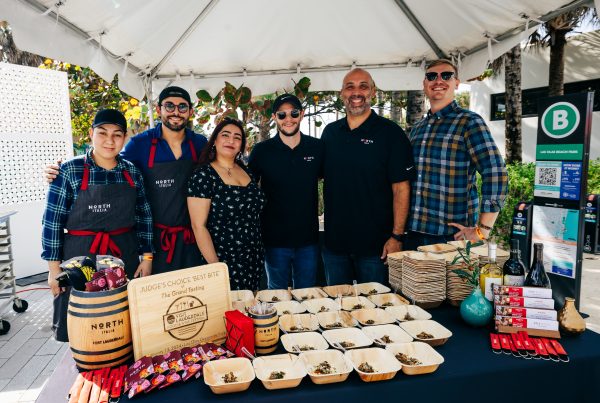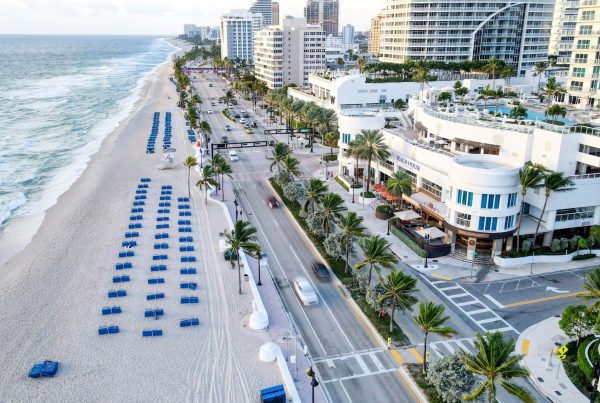Universal private school vouchers have caused public school enrollment to crater in several large Florida counties. That hasn’t happened in Palm Beach County, and especially in Boca Raton.
Though enrollment countywide at traditional public schools—excluding charters—remains below the pre-pandemic high of roughly 169,000, it grew slightly during the past two academic years and is projected to do so again this year. The estimate is for 165,129 students, a number that will become clearer after the October count.
Still, voucher use has increased dramatically. In the 2012-13 year, only 1,337 students in the county received voucher money. Last year, the number was nearly 16,000, double from the year before.
That’s because the Republican-led Legislature in 2023 removed the family income cap for voucher eligibility. A program that began supposedly to help only low-income students then was open to even those from wealthy families.
Heather Frederick is the Palm Beach County School District’s chief financial officer. She notes that charter schools—public schools under private management—are “a known entity.” Charter enrollment, now at roughly 22,000, hasn’t fluctuated much in the last five years. With universal vouchers, though, Frederick said, “We still fully don’t know” what the impact will be.
Statewide, about 70% of voucher students already were attending private schools and would not have enrolled in public schools. The area’s long-standing, more expensive private schools—St. Andrew’s, Pine Crest, American Heritage, North Broward—likely are wary of expanding. Vouchers are worth roughly $8,000, so the tuition gap at those schools remains wide.
Some Catholic schools, though, are adding space to accommodate students who left the district to use vouchers. That’s one reason Broward County has 43,000 empty classroom seats and may close or combine some schools.
One criticism is that the voucher program uses public money to subsidize religious instruction and thus violates the constitutional separation of church and state. Of the 154 private schools in Palm Beach County, all of which can participate in the voucher program if they wish, 70 are religious. Tuitions are low compared to some of the best-known private schools, making them attractive to less-affluent families.
There has been little controversy over the smaller, targeted scholarships for students with disabilities. School district officials acknowledge that their schools are not equipped to offer such specialized instruction.
Voucher creep, however, has caused critics to charge state officials with wanting to undermine public education. They support that charge by pointing out the many ways in which Florida favors voucher schools.
Unlike traditional public schools, voucher schools don’t have to hire certified teachers. They must follow what Frederick calls “one page” of rules. “Our rule book is thousands of pages.”
Perhaps most important, voucher schools don’t have to administer the tests that students at traditional public schools must take. The state uses those scores to calculate grades for each school and district, supposedly as a means of accountability for the use of public money.
But even with vouchers now expected to cost Florida between $2.8 billion a year or $4.2 billion—depending upon which estimate you use—Gov. Ron DeSantis and the Legislature refuse to end their discrimination against public schools. They consider parent happiness with the vouchers to be sufficient.
This lack of accountability extends to the roughly 60,000 families that accept public money to home-school their children. After reports that some parents were spending the money on theme park passes and big-screen TVs, legislators introduced a bill to end such abuse. It failed.
Frederick listed some of the ways Palm Beach County has marketed traditional public schools. The district has “330-plus” choice programs ranging from firefighter training to cybersecurity. Officials have mounted a “kindergarten” campaign to parents whose children are approaching school age. “We have strong (Exceptional Student Education) programs,” she said.
In Boca Raton, the district can tout two new K-8 schools—Addison Mizner and Verde—and a new elementary school, Blue Lake. All public schools are roughly at capacity. Enrollment in Delray Beach has been more of a problem. I will follow up when the new count is done.
Though state leaders have congratulated themselves recently for directing more money to public schools and to teacher salaries, Frederick said the district has calculated that voucher money could have raised teacher pay in the county 20%. Florida still ranks near the bottom in teacher pay and per-pupil spending, despite the governor’s boasts about the strength of Florida’s economy.
Enrollment drives money. Will new religious schools pop up to seek that voucher money and take students who would have gone to the district? Will less-developed areas of the county boost public enrollment as they grow?
The challenges will remain as long as Tallahassee sets a double standard for education. And that ideology won’t change anytime soon.
Weinroth loses primary, ending congressional bid

Robert Weinroth must find another office to run for.
On Tuesday, the former Boca Raton city council member and county commissioner lost the Republican primary to challenge U.S. Rep. Jared Moskowitz in District 23; it includes Boca Raton and West Boca.
Weinroth finished second in the field of six to Joe Kaufman, getting 20.6% of the vote to Kaufman’s 35.4%. Weinroth broke even with Kaufman in Palm Beach County, but lost badly in Broward.
This was Weinroth’s third try at public office in two years. While still a Democrat, he lost his commission re-election bid in 2022 to Marci Woodward. Then he switched parties and filed to run for the school board, only to drop out and run for Congress.
Weinroth raised three times more money than Kaufman and had support from the GOP’s congressional campaign committee. But Kaufman emphasized his lifelong work for the party.
Meanwhile, Dan Franzese won a three-way primary to challenge Democratic incumbent Lois Frankel in District 22, which includes Delray Beach and West Delray. It will be a rematch of 2022, when Frankel beat Franzese by 10 points.
Runoff election for PBC School Board race
Voters in Florida abolished partisan runoffs in 2000. They remain for non-partisan races like those for school board seats.
That’s why Mindy Koch and Gloria Branch will go against each other in November to succeed District 5 school board member Frank Barbieri, even though Koch got 120 more votes. Five candidates were running. To avoid a runoff, candidates need to get a majority, not just a plurality. Koch got 27.6%. The district includes Boca Raton and West Boca.
Frankel loses bid for PBC public defender

Former Delray Beach City Commissioner Adam Frankel lost his bid to become Palm Beach County’s public defender.
Frankel got just 44.2% against Daniel Eisinger. Frankel had support from community leaders in West Boca and West Delray. Eisinger, though, had the backing of incumbent Carey Haughwout, who is leaving after 24 years. Eisinger and Frankel are Democrats. Because no Republican ran, Eisinger faces no opponent in November.
Downtown campus and condo project on Boca CRA agenda
Two items of note are on the agenda for Monday’s meeting of the Boca Raton Community Redevelopment Agency.
The more important is further discussion of the study that will examine options for a new downtown “campus” around City Hall, the police station, the library and the community center. Council members have talked about a public-private partnership, in which a developer could build a mixed-use project in turn for financing new public facilities.
Also before the council, acting as the CRA, is the proposal for a 28-unit condominium at 280 East Palmetto Park Road. It would displace a closed bank building. The project has received unanimous recommendations from the community appearance board and the planning and zoning board.
FAU to kick off football season against Michigan State
Florida Atlantic University’s football team begins its second season under Coach Tom Herman in eight days, with a trip to Michigan State.
This week, The Athletic—one of the country’s leading sports publications—placed FAU 101st in its preseason rankings of all 134 major-college teams. A separate media poll ranked the Owls sixth in the 14-team American Athletic Conference. A year ago, FAU went 4-8.







